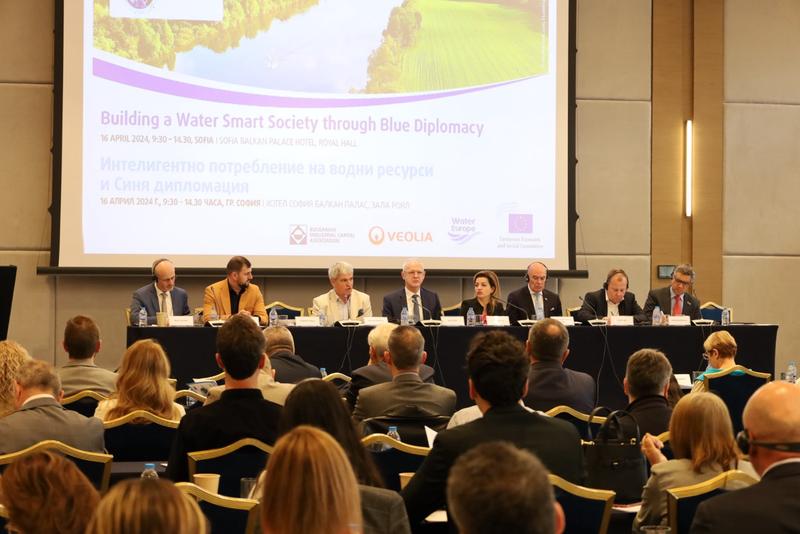Water-related risks from climate change need to be managed
16 Apr, 2024 | 17:17
"Every day we witness the growing relevance of water sustainability both regionally and globally. Proactive action is needed to prevent and manage water-related risks from climate change." This is what Reneta Koleva, Deputy Minister of Environment and Water, said today at the opening of the conference "Smart Water Consumption and Blue Diplomacy", organised by the Industrial Capital Association of Bulgaria (ICAB) in partnership with the European Economic and Social Committee (EESC), Water Europe, and Veolia Bulgaria.
Bulgaria is located in a region vulnerable to climate change with an increasing frequency of extreme weather events, such as droughts and floods. Particularly sensitive are issues related to water supply for drinking purposes, irrigation for agricultural needs, and the provision of alternative water options for economic sectors and aquatic ecosystems. "In response to these challenges, our country is making efforts to accoint fot the impact of climate change and to provide for mitigation and adaptation measures in integrated water management at the national level, including management of complex and significant dams, river basin management plans, flood risk management plans and others," said Reneta Koleva.
She reminded of the recent adoption of two important European documents, the European Environment Agency's Climate Risk Assessment (EUCRA) Report and the Commission's Communication "Managing Climate Risks - Protecting People and Prosperity", which noted the increasing pressure on water resources. Key to achieving the objectives is the provision of adequate funding for the water sector, not only to strengthen the efforts to achieve water sustainability, but also to ensure the implementation of existing and forthcoming ambitious European legislation.
"Achieving sustainable and effective water management, along with reducing droughts and water scarcity, are only possible with an integrated approach that takes into account the new global climate realities. This approach must be tailored to the national characteristics and specific circumstances of Member States and be supported by the provision of appropriate funding from the European Union," said Deputy Minister Koleva. She called for sufficient EU funds to be made available to assist Member States in the implementation and effective enforcement of infrastructure development requirements, methodological support and the provision of additional expert capacity.

